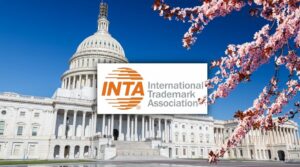
In this challenging economic climate, firms are constantly seeking new ways to provide better services while trying to drive down costs. We asked leading trademark experts from WTR’s annual Global Leaders guide to offer their tips and tricks for combatting these challenges head on.
Their answers range from strategies for facing litigation to the impact of new tech. But their number one takeaway applies to all trademark practitioners. This is not about transforming your entire practice, they insist. Instead, use the tools already in your arsenal and make the evolving landscape work for you, not against you.
Not all roads lead to litigation
While litigation is an effective avenue, it can be incredibly expensive. Ultimately, the best way to cut down on such costs is to avoid the courts altogether, Marina Perraki of Tsibanoulis & Partners claims.
However, this is not always possible. “Sometimes litigation is not only unavoidable but advantageous, such as in cases where it is important for the client to have a precedent,” she admits.
When such situations arise, Perraki recommends that lawyers continue to pursue an out-of-court resolution as a priority before entering into litigation.
HGF’s Lee Curtis, Alexander Hagen, Kasper Radsake, Pieter de Ruijter and Neil McKechnie agree. “Going to court over IP issues involves uncertainty, delay and, above all, expense,” they maintain. Instead, lawyers should explore every and any opportunity to settle disputes out of court.
An informal approach is best; setting out concerns and demands clearly and openly will enable dialogue that leads to an agreed settlement. “Various systems are in place to encourage parties to seek a settlement,” they assert. “Take advantage of that.”
Perraki does have some invaluable tricks up her sleeve for when a court showdown is unavoidable. Particularly pertinent for EU-wide disputes where the legal environment is harmonised, she encourages clients to have “organised evidence material that can be used in different jurisdictions and cases”. Similar matters may arise in other jurisdictions. Therefore, it is much more cost-effective to be ready. “Providing an attorney with all relevant evidence and information from the beginning is also important,” she insists.
Uhthoff’s Saul Santoyo Orozco also maintains that it is best to be prepared. He advises planning “as much as possible” to anticipate potential weaknesses in a client’s trademark enforcement strategy as a means of sidestepping litigation. “As with many situations in life, prevention is critical to mitigate unforeseen costs,” he says.
“The be-all and end-all of efficient IP prosecution is an experienced team of motivated specialists providing careful advice right from the beginning in order to avoid unnecessary problems and subsequent costs later on,” Michael Ritscher of MLL Legal agrees.
Adapt billing models
When it comes to the new normal, “cost-related pressures are here to stay”, Remfry & Sagar’s Ashwin Julka points out. According to him, “traditional billing methods – by the hour or at a fixed rate – are quickly evaporating”. Instead, firms and clients are turning to alternative models, such as fixed, flat, blended or capped fees to foster long-term relationships. It is therefore crucial that both clients and firms take a head-on approach to adapting.
For firms in India, this is more critical than ever. Doing so could even result in new, positive opportunities. “India’s overall demand for legal services is rising. So, despite cost and competition pressures, law firms have a lot of opportunities to expand services and clientele,” Julka reports.
Take advantage of advancing tech
Firms’ shift in style is being compounded by the impact of technology, which is advancing at unprecedented rates. In the face of rising costs, it can be transformative to use fresh innovations to work smarter, not harder. Indeed, Ritscher insists that “cutting-edge IT can do a lot to keep the time required as low as possible” and streamline processes. This allows practitioners to dedicate more of their time to high-value work.
“The legal industry is in flux, with technology and competitive pressures driving change,” Julka says. He believes that the biggest challenge firms face during volatile times is “recognising these forces of change, responding to them and converting them into opportunities”. His solution: “employ top-of-the-line technological tools and digital solutions to support their core legal services”.
Global Leaders is WTR’s annual opportunity to showcase some of the world’s top private practice trademark experts, allowing them space to share valuable insight into the most pressing issues dominating the IP space and their thoughts for the future. The next edition is due to be published at the end of June 2023.
- SEO Powered Content & PR Distribution. Get Amplified Today.
- EVM Finance. Unified Interface for Decentralized Finance. Access Here.
- Quantum Media Group. IR/PR Amplified. Access Here.
- PlatoAiStream. Web3 Data Intelligence. Knowledge Amplified. Access Here.
- Source: https://www.worldtrademarkreview.com/article/how-succeed-in-the-face-of-economic-headwinds
- :is
- :not
- :where
- $UP
- 2023
- a
- About
- above
- According
- advancing
- ADvantage
- advantageous
- advice
- against
- Alexander
- All
- Allowing
- allows
- already
- also
- alternative
- altogether
- always
- an
- and
- annual
- answers
- anticipate
- any
- approach
- ARE
- Arsenal
- AS
- At
- attorney
- Avenue
- avoid
- BE
- be-all
- before
- Beginning
- being
- believes
- BEST
- Better
- Biggest
- billing
- both
- but
- by
- CAN
- careful
- cases
- challenge
- challenges
- challenging
- change
- claims
- clearly
- client
- clientele
- clients
- Climate
- comes
- competition
- competitive
- Concerns
- constantly
- continue
- converting
- Core
- Cost
- cost-effective
- Costs
- could
- Court
- Courts
- critical
- crucial
- Cut
- dedicate
- delay
- Demand
- demands
- Despite
- dialogue
- different
- digital
- disputes
- do
- does
- doing
- down
- drive
- driving
- due
- during
- Economic
- edition
- Effective
- efficient
- enable
- encourage
- encourages
- end
- enforcement
- entering
- Entire
- Environment
- Ether (ETH)
- Even
- EVER
- Every
- evidence
- evolving
- Expand
- expensive
- experienced
- experts
- explore
- Face
- facing
- Fees
- firms
- fixed
- flat
- FLUX
- For
- Forces
- Foster
- fresh
- from
- future
- guide
- Have
- he
- head
- headwinds
- her
- here
- him
- his
- hour
- How
- How To
- HTTPS
- Impact
- important
- in
- In other
- incredibly
- india
- industry
- informal
- information
- innovations
- insight
- instead
- into
- invaluable
- IP
- issues
- IT
- june
- jurisdictions
- Keep
- landscape
- later
- Law
- law firms
- Lawyers
- lead
- leaders
- leading
- Leads
- Lee
- Legal
- legal services
- Life
- Litigation
- long-term
- Lot
- Low
- maintain
- maintains
- make
- many
- material
- Matters
- May..
- means
- methods
- Michael
- Mitigate
- models
- more
- most
- motivated
- much
- New
- New Tech
- next
- normal
- number
- of
- offer
- on
- ONE
- only
- openly
- opportunities
- Opportunity
- or
- order
- Other
- out
- over
- overall
- particularly
- parties
- partners
- Place
- planning
- plato
- Plato Data Intelligence
- PlatoData
- points
- positive
- possible
- potential
- practice
- Precedent
- prepared
- pressing
- Prevention
- priority
- private
- problems
- processes
- PROSECUTION
- provide
- providing
- published
- pursue
- quickly
- range
- Rate
- Rates
- ready
- recommends
- Relationships
- relevant
- Reports
- required
- Resolution
- responding
- result
- right
- rising
- roads
- says
- Seek
- seeking
- Services
- setting
- settle
- settlement
- Share
- she
- shift
- should
- showcase
- Showdown
- similar
- situations
- smarter
- So
- solution
- Solutions
- some
- Space
- specialists
- strategies
- Strategy
- streamline
- style
- subsequent
- succeed
- such
- support
- Systems
- Take
- team
- tech
- technological
- Technology
- than
- that
- The
- The Future
- their
- Them
- therefore
- These
- they
- this
- time
- times
- tips
- tips and tricks
- to
- tools
- top
- trademark
- transformative
- transforming
- Turning
- Ultimately
- Uncertainty
- unforeseen
- unprecedented
- use
- used
- Valuable
- volatile
- Way..
- ways
- we
- when
- which
- while
- will
- with
- Work
- world’s
- you
- Your
- zephyrnet












